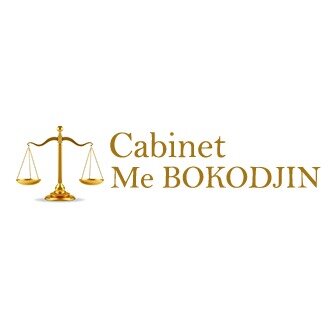Best Conveyancing Lawyers in Togo
Share your needs with us, get contacted by law firms.
Free. Takes 2 min.
Free Guide to Hiring a Real Estate Lawyer
Or refine your search by selecting a city:
List of the best lawyers in Togo
About Conveyancing Law in Togo
Conveyancing in Togo refers to the legal process of transferring property ownership from one party to another. This process involves strict legal and administrative procedures to ensure the lawful transfer of real estate, whether it is land, a house, or commercial property. In Togo, as in many countries, conveyancing is an essential part of real estate transactions and is governed by both traditional practices and modern statutes. The process typically requires due diligence, verification of the property title, signing of legal documentation, and registration with local authorities to make the transfer legally binding.
Why You May Need a Lawyer
Seeking legal assistance when dealing with conveyancing matters in Togo is often necessary due to the complexity of property law and the risk of disputes. Common situations where you may require a lawyer include:
- Buying or selling real estate and ensuring a clear title transfer
- Verifying property boundaries and ownership rights
- Drafting and reviewing sale agreements and other legal documents
- Handling disputes over land or property inheritance
- Addressing issues related to co-ownership or joint properties
- Managing complications with mortgages or liens against the property
- Dealing with foreign investment and ownership requirements
- Ensuring proper filing and registration with government authorities
- Navigating traditional land tenure systems versus statutory laws
A lawyer’s expertise can help prevent costly mistakes, resolve disputes, and provide peace of mind throughout the conveyancing process.
Local Laws Overview
Conveyancing in Togo is regulated by a combination of statutory law, such as the Togolese Land Code and Civil Code, along with customary land tenure practices that are still prevalent in many regions. The main legal framework covers the following key points:
- All property transactions must be documented in writing and signed by both parties.
- Land titles and deeds must be verified for authenticity and possible encumbrances or claims from third parties.
- Property transfer must be registered with the Direction Générale des Affaires Domaniales et Foncières (General Directorate of Land Affairs and Property).
- There are specific procedures for foreign ownership, which may involve additional restrictions or approvals.
- Tax implications, especially transfer taxes and registration fees, are mandatory during conveyancing.
- Inheritance and co-ownership issues often require court intervention or notarial authentication.
It is important to work with a legal professional familiar with both formal regulations and local customary practices for a smooth and lawful transfer.
Frequently Asked Questions
What documents are needed to sell or buy property in Togo?
You will need a valid land title or property deed, personal identification, a sales agreement, proof of payment of taxes and fees, and any previous agreements or court orders related to the property.
How long does the conveyancing process take in Togo?
The process can take several weeks to several months, depending on the complexity of the transaction, the promptness of document delivery, and administrative processing times.
Do I need to hire a notary or lawyer for property transactions?
While it is not always obligatory, hiring a notary or lawyer is highly recommended to ensure that the transaction is legally valid, properly documented, and registered.
How do I verify the authenticity of a land title in Togo?
The General Directorate of Land Affairs and Property can verify land titles. Legal professionals can also help by conducting title searches and checking for liens or disputes.
Are there restrictions for foreigners buying property in Togo?
Foreigners may be subject to certain restrictions or may need government approval to buy land, particularly in sensitive or rural areas.
What taxes or fees are involved in conveyancing?
There are usually registration fees, transfer taxes, notary fees, and possibly stamp duties that both buyers and sellers should be aware of.
How are disputes over property inheritance resolved?
Such disputes are generally resolved through court processes or mediation, and often require proof of rightful succession or will documentation.
What are the risks if I fail to register my property transfer?
If a property transfer is not registered, the new owner may face legal challenges, difficulty proving ownership, or even loss of rights to the property.
Can co-owned property be sold without the consent of all owners?
No, all co-owners must generally agree and consent to the sale of jointly owned property. Otherwise, the sale may be legally challenged.
What role does customary law play in conveyancing in Togo?
Customary law governs land rights in many rural areas. Traditional authorities may need to be consulted, and their consent or endorsement may be required for a legal transfer.
Additional Resources
If you need further information or assistance, the following resources can be helpful:
- Direction Générale des Affaires Domaniales et Foncières - responsible for land registration and title verification
- Ministry of Urbanism, Housing, and Land Reform - oversees national land policy and urban property management
- Local Bar Association - can provide contact information for qualified conveyancing lawyers
- Notaries’ Chambers - notaries play a key role in drafting and authenticating legal documents for property transfer
- Municipal and Traditional Authorities - for guidance on customary land issues and consent
Next Steps
If you are considering a property transaction or have any concerns regarding conveyancing in Togo, start by identifying your specific needs and gathering relevant documents. Contact a qualified lawyer or notary who specializes in property law and conveyancing. Schedule a consultation to discuss your case in detail, ask about their experience and fees, and request a clear outline of the process and timeline. Finally, follow your legal advisor’s recommendations to ensure that all procedures are correctly followed, documents are properly executed and registered, and your interests are protected throughout the transaction.
Taking these steps will help you navigate the conveyancing process confidently and avoid common pitfalls in property transactions in Togo.
Lawzana helps you find the best lawyers and law firms in Togo through a curated and pre-screened list of qualified legal professionals. Our platform offers rankings and detailed profiles of attorneys and law firms, allowing you to compare based on practice areas, including Conveyancing, experience, and client feedback.
Each profile includes a description of the firm's areas of practice, client reviews, team members and partners, year of establishment, spoken languages, office locations, contact information, social media presence, and any published articles or resources. Most firms on our platform speak English and are experienced in both local and international legal matters.
Get a quote from top-rated law firms in Togo — quickly, securely, and without unnecessary hassle.
Disclaimer:
The information provided on this page is for general informational purposes only and does not constitute legal advice. While we strive to ensure the accuracy and relevance of the content, legal information may change over time, and interpretations of the law can vary. You should always consult with a qualified legal professional for advice specific to your situation.
We disclaim all liability for actions taken or not taken based on the content of this page. If you believe any information is incorrect or outdated, please contact us, and we will review and update it where appropriate.
Browse conveyancing law firms by city in Togo
Refine your search by selecting a city.











